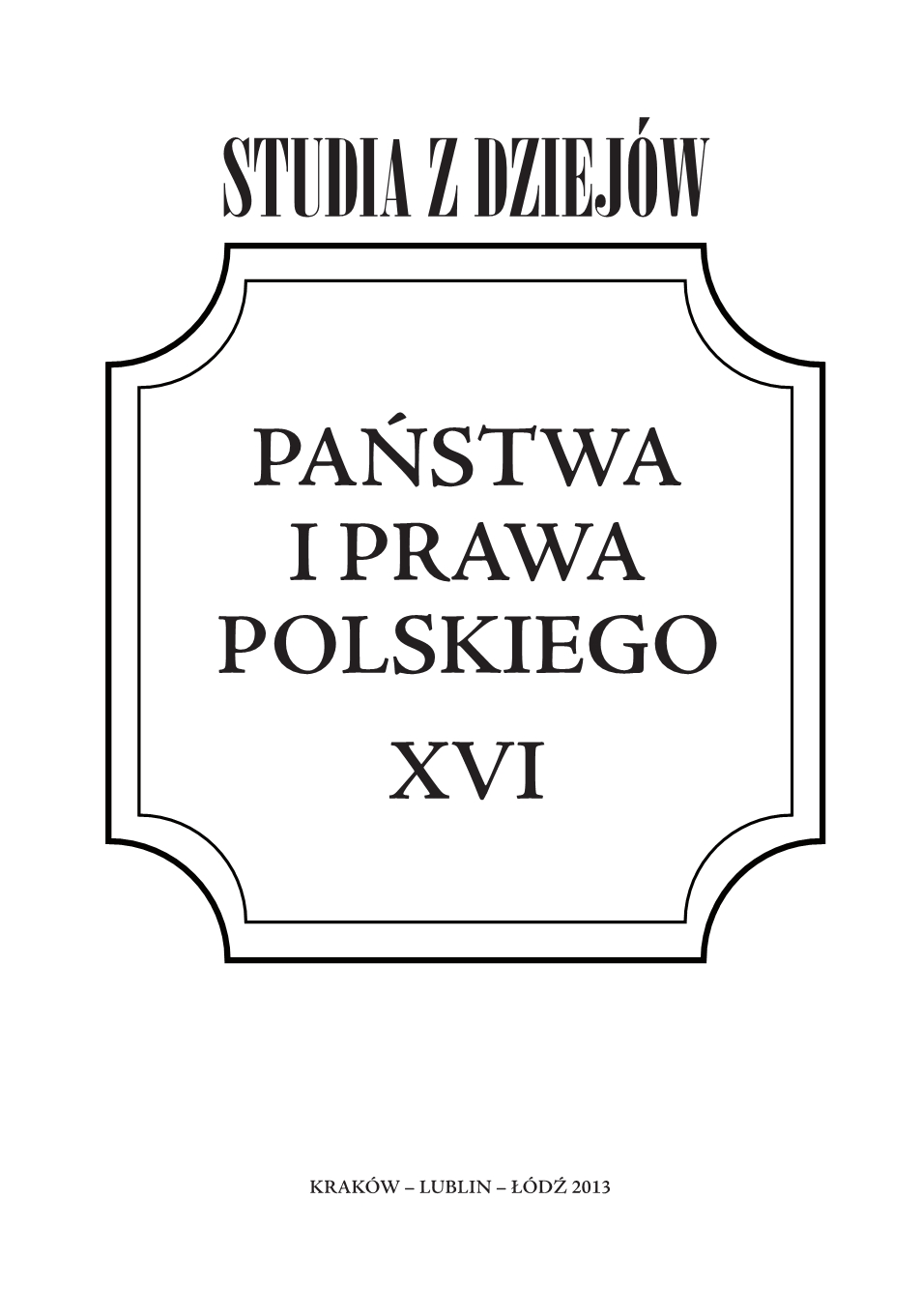Państwowość konspiracyjna w edukacyjnych narracjach historycznoprawnych
Underground statehood in educational historical and legal narrative
Author(s): Eugeniusz HullSubject(s): Education, Law, Constitution, Jurisprudence, History of Law, Governance, History of Education, State/Government and Education, WW II and following years (1940 - 1949)
Published by: Oficyna Wydawnicza AFM Uniwersytetu Andrzeja Frycza Modrzewskiego w Krakowie
Summary/Abstract: The functioning of institutional clandestine life covering the political, civil, and military realms made it possible to fulfil the basic tasks of the state. Such a state had at its disposal, the system of central and regional administration, clandestine military organisation, organs of justice, a system of education, a publishing network, and ample political, cultural, and social life. The underground forms of law enforcement were present in two institutional structures. In the executive branch, it was the Government Delegation for Poland and the underground courts. Also party courts were in operation. In academic legal education, the occupation of Poland during the second world war is an element of the second world war narrative, and the construction of the notion of the underground state turns up in the historical and legal description of 20th-century Polish statehood and in the investigation of the history of state administration and administration concepts. In both the areas, the term “Polish underground state” has been present since the end of the previous century.
Journal: Studia z Dziejów Państwa i Prawa
- Issue Year: XVI/2013
- Issue No: 1
- Page Range: 283-296
- Page Count: 14
- Language: Polish

